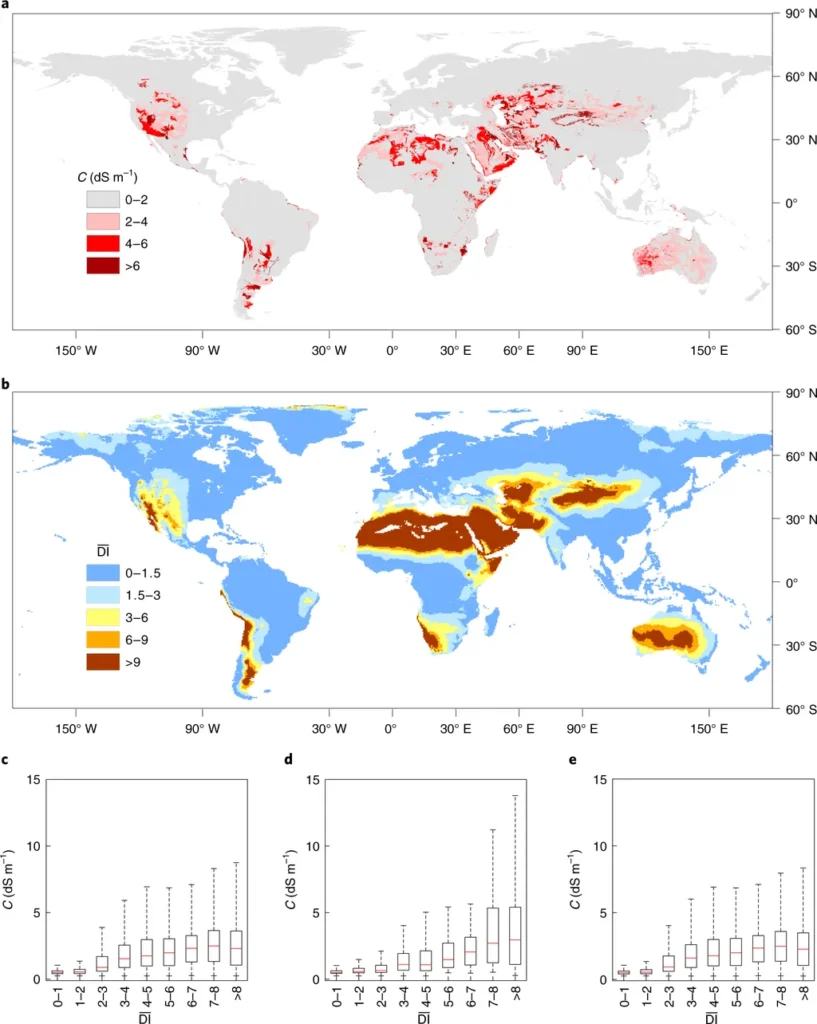In the face of escalating soil salinization threatening agricultural productivity in arid and semi-arid regions, a comprehensive bibliometric analysis published in *Agricultural Water Management* sheds light on the evolving landscape of research dedicated to mitigating this pressing challenge. The study, led by Zhonghong Li of the Institute of Biotechnology at the Beijing Academy of Agriculture and Forestry Sciences, scrutinizes 2561 publications spanning three decades to uncover trends, research hotspots, and future directions in the field of saline soil improvement.
The analysis reveals a steady increase in research output, characterized by three distinct phases: an initial exploratory period, a slow development phase, and a recent rapid growth stage. This surge in academic interest underscores the critical need to address soil salinization, which hampers crop yields and threatens food security. “The gradual rise in research output reflects the growing recognition of soil salinization as a significant obstacle to sustainable agriculture,” Li notes.
The study highlights the dominance of “Environmental Sciences,” “Soil Science,” and “Plant Sciences” in this research domain, with interdisciplinary collaborations enriching the depth and scope of studies. China emerges as the leading contributor, playing a pivotal role in international cooperation networks. This collaborative approach is crucial for developing scalable and effective solutions to combat soil salinization.
Current research focuses on physical, chemical, and biological strategies to improve saline soils. The integration of chemical amendments, the development of salt-tolerant crop varieties, and the application of innovative nanomaterials are anticipated to be key areas of future research. These advancements could revolutionize agricultural practices, particularly in regions grappling with saline soil challenges.
The commercial implications of this research are substantial. By enhancing soil quality and crop resilience, these innovations can boost agricultural productivity, secure food supplies, and open new markets for salt-tolerant crops. Farmers and agribusinesses stand to benefit from these technological advancements, which could lead to more sustainable and profitable farming practices.
As the agricultural sector faces increasing pressure to feed a growing global population, the insights from this bibliometric analysis provide a roadmap for future research and development. The study not only highlights the current state of the field but also points to promising avenues for innovation. By fostering collaboration and leveraging multidisciplinary approaches, the agricultural industry can make significant strides in mitigating the impacts of soil salinization and ensuring a more sustainable future.
The research, published in *Agricultural Water Management* and led by Zhonghong Li from the Institute of Biotechnology at the Beijing Academy of Agriculture and Forestry Sciences, offers a comprehensive overview of the progress and potential in the fight against soil salinization. As the world grapples with the challenges of climate change and food security, these findings are more relevant than ever, paving the way for a more resilient and productive agricultural landscape.

